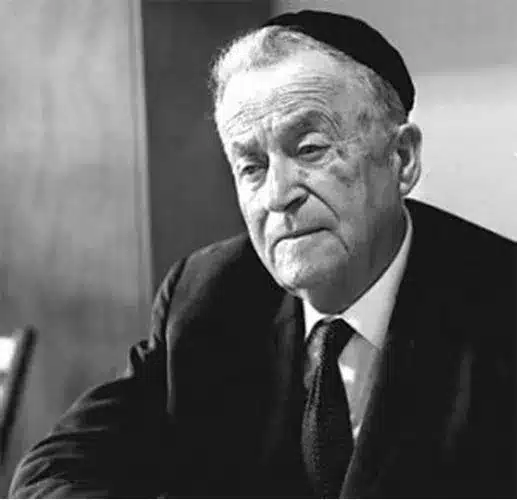Shmuel Yosef Agnon, (17 July 1888 – 17 February 1970) also known as Shai Agnon, was an Israeli writer. He won the 1966 Nobel Prize in Literature.
Life and Career
Shmuel Yosef Agnon was born on 17 July 1888, in Buchach, Ukraine, and died on 17 February 1970, in Jerusalem, Israel.
In the beginning (1903–06), he wrote in Yiddish and Hebrew. After settling in Palestine in 1907, he took the name Agnon and wrote his dramatic, visionary, highly polished stories in Hebrew.
He wrote his first major book in 1922, Hakhnasat Kalah (The Bridal Canopy), about the golden age of Hassidism, and his first apocalyptic novel in 1939, Oreach Nata Lalun (A Guest for the Night), about Galicia in the wake of the First World War.
His other works are mostly set in his adopted Palestine and deal with the Zionist movement replacing the early Jewish settlements after the Second World War.
His epic Temol Shilshom (Only Yesterday), 1945, is one of his greatest works, and also the nightmarish Sefer Hamaasim (The Book of Deeds), 1932, is based on early pioneer immigrants.
Legacy
Agnon is considered one of the greatest Hebrew writers of the twentieth century and one of the founders of modern Hebrew literature. His writing has influenced generations of writers and continues to be celebrated for his unique voice and contribution to the Hebrew literary canon.
He wrote novels, short stories, and essays, often focusing on Jewish life and traditions. His works also explored themes of identity, faith, and the relationship between individual and collective memory.
Some of his most famous works include “A Simple Story,” “The Bridal Canopy,” and “Only Yesterday.”
Many of his books have been translated into multiple languages, making his work accessible to a wider audience.
Award
Agnon was awarded the Nobel Prize in Literature in 1966, sharing the prize with German writer Nelly Sachs. He is the only Hebrew-language writer to have received the Nobel Prize in Literature.

